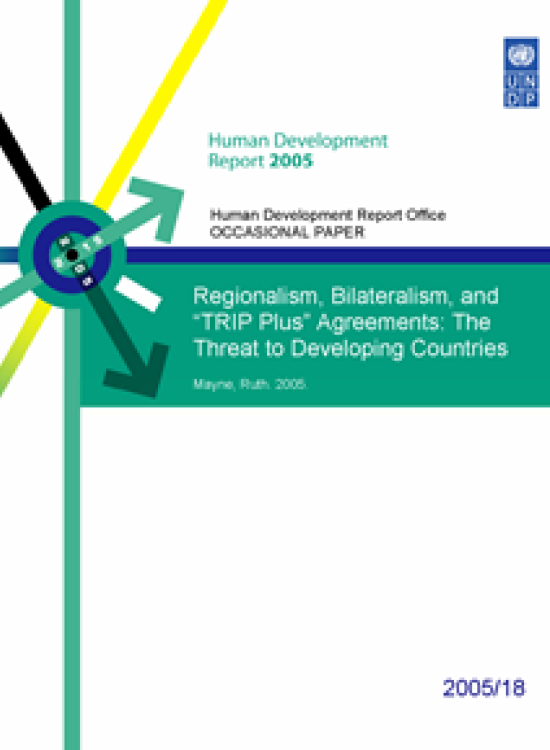Regionalism, Bilateralism, and “TRIP Plus” Agreements
The Threat to Developing Countries

Download Report by Language
Document
hdr2005mayneruth18.pdf
(229.69 KB)
Citation
Mayne, Ruth. 2005. Regionalism, Bilateralism, and “TRIP Plus” Agreements: The Threat to Developing Countries. New York.
Regionalism, Bilateralism, and “TRIP Plus” Agreements
The Threat to Developing Countries
Posted on: January 01, 2005
This paper focuses on the political economic forces driving WTO-plus provisions in bilateral and regional trade and investment agreements, and the implications for multilateralism and access to medicines in developing countries. Since the mid 1980s the US and EU have used a combination of unilateral pressure and forum shifting from bilateral agreements to multilateral standard setting and then back to bilaterals again as a way of securing trade concessions from developing countries, including stronger intellectual property (IP) protection for exported knowledge-goods. Recently, there has been a resurgence of US and EU interest in bilateral and regional free trade agreements (FTAs). This is in part a response to the emergence of a strong and assertive group of developing countries at the WTO which has made it harder for the US and EU to achieve their negotiating goals in this forum. The paper focuses on the way rich country are using bilateral and regional free trade and investment agreements to ratchet up global IP protection on new medicines with provisions that go beyond even the damaging requirements of World Trade Organisation (WTO) rules. These provisions, known as TRIPS-plus, may involve countries being made to apply more stringent standards, not use existing flexibilities or public interest safeguards, or to comply with TRIPS obligations before time. In addition, under the Most Favoured Nation provision in TRIPS (Article 4), once a member of the WTO agrees to a higher standard of intellectual property protection in a free-trade agreement with the US, it is obliged to ‘immediately and unconditionally’ extend those standards to the nationals of other WTO members. This is something that is often not appreciated by smaller developing countries. The paper assesses the implications of bilateral trade agreements for multilateralism and public health.

